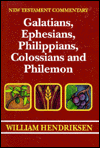Spirit and Truth
Yet a time is coming and has now come when the true worshipers will worship the Father in spirit and truth, for they are the kind of worshipers the Father seeks.
-- John 4:23
There must be something in the air.
Last Sunday night at Element, I preached on "Snuffing Out Spiritless Spirituality," which was (my attempt at) a prophetic call to repent of the disconnection between "spirituality" and theology. My point was that while good works, fruit, and Christian spirituality are required for life in Christ, they don't trump right belief or make sound doctrine optional. You can't live God without knowing God.
Anyways, just now I find this excellent post from Phil Johnson. Here's an excerpt:
Biblically, our theology is an important aspect of our fruit. "Whoever transgresses and does not abide in the doctrine of Christ does not have God. He who abides in the doctrine of Christ has both the Father and the Son" (2 John 9).
Moreover, the notion that what people do is ultimately more important than what they believe flies in the face of the very same proof-texts that are normally used to support it. [Scot] McKnight, for example, quotes James 2:20: "Faith without works is dead" But that verse doesn't suggest that what we do is more important than what we believe; James's whole point is that the two things seen properly are perfectly symbiotic. One is just as important as the other.
And in terms of causal priority, faith does take first place over works, because any truly good works we do are the fruit of our faith—and James expressly says so at the start of his argument: "I will show you my faith by my works" (James 2:18).
That's the same cause-effect relationship between faith and works that Scripture consistently stresses. Titus 2 describes good works as adornments for sound doctrine; not vice versa. According to 2 Peter 1:5-8, Christian virtues are the necessary accoutrements of authentic Christian faith.
And later:
The Emerging penchant for making orthopraxis primary over orthodoxy has produced rhetoric and behavior which at times seem to imply that sound doctrine is almost wholly optional. The whole way of thinking is upside down. But that's not the worst of it. Take the notion that behavior always trumps belief to its logical conclusion, and you will end up making a person's own works the ground of his or her hope for justification.
Yes. That was the thrust of my message last night, which was to say when we divorce right practice from right belief, we suddenly make our salvation about our own righteousness, not Christ's. And as some of the folks who listen to me every week are beginning to notice (if not grow weary of :-), it is always, totally, completely, wholly, and finally about Jesus and his work, not us and ours.



















1 Comments:
Btw, I really like Scot McKnight. His book Jesus Creed (as well as the others of his I've read) are fantastic.
As far as Johnson's post is a critique of McKnight, which it really isn't, I'm not totally on board.
But as far as it's a critique of emerging church divorce of spirituality from foundational doctrine, which it is, I am totally on board.
Post a Comment
<< Home